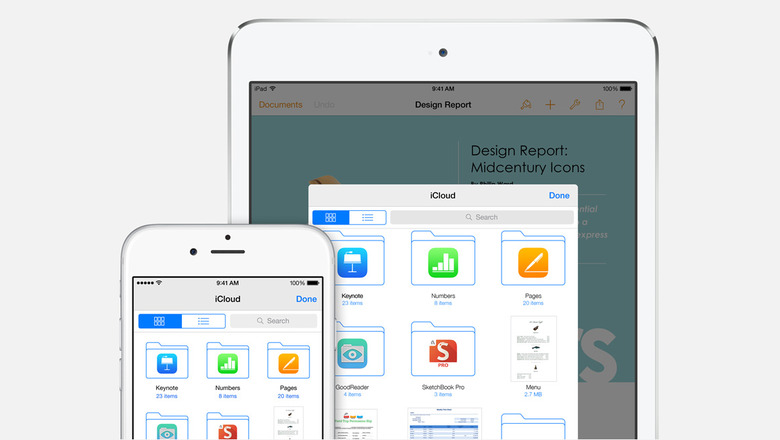Hackers Can Steal An Astonishing Amount Of Personal Information In iCloud 'Nudegate' Type Hacks
During Tuesday's big keynote address, Apple never once mentioned the iCloud-related scandal that occurred in the week before its iPhone 6 announcement. But although Tim Cook vowed to improve iCloud security in an interview soon after those celebrities' nudes popped online, it looks like there's still reason to worry. Ars Technica has published an extremely detailed look at how hackers can, or were able to, attack an iOS device without the user suspecting anything and retrieve a horde of personal data from iCloud backups.
With the help of simple software tools that are believed to have been used in "nudegate" attacks, Ars managed to hack into iPhones and retrieve personal data from iCloud accounts of family members. The tools work best on older devices running previous iOS versions, but they have been successfully used on iPhones running iOS 7 that can be jailbroken and it's likely that these methods will work on iOS 8 devices as well.
And it turns out one doesn't have to be a star hacker to pull this off, either: You only need some skills and technical understanding to hack into your friends' iOS devices.
Getting to the point where you can actually hack into the iCloud is the tough job, as it requires access to an iOS device or a computer that's trusted by the device. You can break into these devices either through physical access, through a phishing scheme or through brute force attacks like the ones allegedly used in the iCloud hack. But once you get access to iCloud, those software tools will get you a treasure trove of data that can be downloaded instantly and explored. In fact, it appears you can get access to all iCloud backups, including older ones, and just choose and pick what you need from there.
You can even go one step further and clone an iOS device, and even stalk the target by using against them the Find My iPhone app once iTunes credentials have been stolen.
Apple is expected to further improve the security of iCloud and raise awareness about what users have to do to keep their data more secure, especially considering that the company wants its customers to trust it with even more personal data and act as the middleman in wireless payments on iPhone 6 and Apple Watch.
Below, you can see the kind of information hackers can obtain from old iCloud backups, as posted by Ars. The entire article is available at the source link and it's definitely worth a read.
- SQLite databases containing phone call history, SMS and iMessage messages, and voicemail message data (with the number they were from and timestamps for when they were trashed) dating back to the phone's original purchase. So much for deleting call history.
- A file called "recents" that contained e-mail, Messenger, and SMS addresses with message header data and other information.
- An "accounts" database with all the e-mail, Twitter, and Apple-associated identity accounts we've ever held. Some details synced over from accounts closed before the target phone was purchased.
- A file with all "known" Wi-Fi hotspots, with the SSIDs and MAC addresses of every hotspot the phone ever connected to.
- Images, many believed to be long deleted, in three separate photo folders on each backup. All of the images carried the default EXIF data that Apple's
- camera app attaches to them: dates taken, GPS latitude, longitude, and altitude. These images, in our oldest iCloud backup, were part of a much older incremental backup that had not been cleared from the cloud, and were found in a duplicate image folder within the DCIM folder of the backup image.
- A file containing Apple Maps addresses searched for.
- Mailbox files for the e-mail accounts used with Apple's Mail app.
- An address book database with over 1,000 e-mail addresses, phone numbers, Facebook profile links, and other contact data.
